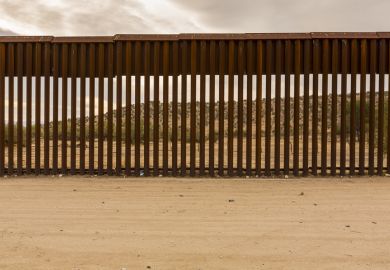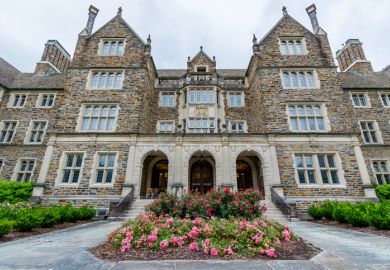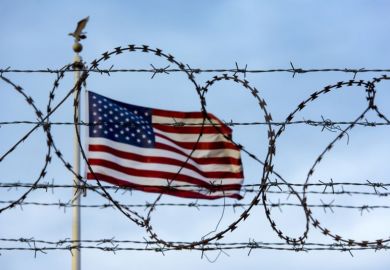The Trump administration, under clear pressure from business leaders, has begun seeking the advice of US university leaders on how to convince more foreign students to stay in the country and work.
Top administration officials pursued the question for two hours with more than a dozen university representatives at the White House on 8 March. “We could not have asked for a better meeting with the White House,” said one attendee, Terry Hartle, the senior vice-president for government and public affairs at the American Council on Education.
The unusual outreach suggests another bounceback in the administration’s ongoing split between President Trump’s oft-stated aversion to immigrants and his desire to please political allies in the corporate world who rely on their expertise and labour.
The event left university leaders with no sense of any imminent change in policy, Dr Hartle said. But just the level of administration representation – a White House deputy chief of staff and officials from five Cabinet agencies and five separate White House offices – suggested a clear seriousness of intent, Dr Hartle said.
“They wanted to better understand the dynamics around how and why international students seek to stay in the United States to continue their education and training – what helps them and what hurts them,” he said.
“This is the first we’ve really heard from them about international students,” Dr Hartle continued, speaking in Philadelphia while attending the annual conference of the American Council on Education, the leading US higher education lobby group.
At times during his presidency, Mr Trump has insisted that his hard-line anti-immigration stance only reflected opposition to illegal border crossings. Yet that distinction is often lost in both the tenor of his words and the reach of his policies.
One key area worrying the US business community is the administration’s apparent shifts in handling optional practical training – a provision in US immigration law that gives foreign students attending US colleges a period of work eligibility during or after their studies.
The law generally allows one year of work eligibility, which can be extended by another two years for those foreign students trained in the sciences. But the administration has made some guidance changes that have at least raised doubt among students and businesses about whether and to what degree such rights remain fully intact.
The optional practical training issue was a clear focus of the administration officials, Dr Hartle said. “To me,” he said, “it sounded like businesses had been talking to them about the difficulty they’ve been having getting people to stay here.”
Although the full range of causes isn’t clear, US colleges have seen a decline in foreign students during the Trump administration. The president’s rhetoric could be a factor, Dr Hartle told the ACE gathering, but probably not the only one.
For instance, Dr Hartle said, the sharpest recent decline in foreign students at US colleges involves India, and that almost certainly has been driven in large part by two highly publicised killings in the past two years of Indian nationals – one of them a college student – in the Kansas City area.
“That story was front page news in India for about three months; it was front page news in the United States for about three days,” Dr Hartle said of the killing of the student, Sharath Koppu of the University of Missouri-Kansas City. “It struck a chord in India.”
Register to continue
Why register?
- Registration is free and only takes a moment
- Once registered, you can read 3 articles a month
- Sign up for our newsletter
Subscribe
Or subscribe for unlimited access to:
- Unlimited access to news, views, insights & reviews
- Digital editions
- Digital access to THE’s university and college rankings analysis
Already registered or a current subscriber?








